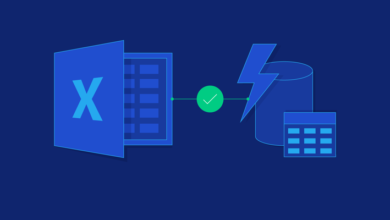Navigating the IT World: The Significance of CompTIA Certificates

CompTIA (Computing Technology Industry Association) certification is a globally recognized credential that validates the skills and knowledge of IT professionals in various areas of information technology.
CompTIA offers a wide range of certifications, each focusing on different aspects of IT, from entry-level to advanced levels of expertise. These certifications are vendor-neutral, meaning they are not tied to any specific technology or manufacturer, making them valuable across different IT environments and industries. Click here to know more about SY0-601 dumps.
Key Aspects:
Cybersecurity Emphasis
CompTIA offers a range of cybersecurity-focused certifications, such as Security+, CySA+, and PenTest+. With the increasing importance of cybersecurity in the digital age, these certifications are particularly valuable for professionals in the field.
Vendor-Neutrality
CompTIA certifications are not tied to any particular technology company or product. This neutrality demonstrates a broad understanding of IT concepts and principles, making certification holders adaptable to various IT environments.
Diverse Certification Portfolio
CompTIA offers certifications in areas such as computer hardware, software, networking, cybersecurity, and project management.
Some of the popular certifications include
- CompTIA A+
- Network+
- Security+
- CySA+
- PenTest+
Global Recognition
CompTIA certifications are recognized and respected worldwide. Many employers consider these certifications as valuable qualifications when hiring or promoting IT professionals.
Career Advancement
Earning CompTIA certifications can open doors to new career opportunities and higher-paying positions in the IT field. They are often a prerequisite for more advanced certifications.
Skill Validation
CompTIA exams test the knowledge and skills of the candidate in specific IT domains. Achieving a CompTIA certification validates your expertise in the relevant area, providing confidence to employers and clients.
Industry-Driven Content
CompTIA certifications are developed with input from industry experts and professionals, ensuring that the content is relevant and aligned with industry standards and best practices.
Continuing Education
CompTIA certifications typically require continuing education to stay current, reflecting the ever-evolving IT landscape. This ensures that certified professionals remain up-to-date with industry trends and technologies.
Entry-Level Options: CompTIA provides certifications suitable for individuals with varying levels of IT experience. Certifications like A+ and IT Fundamentals (ITF+) are excellent starting points for beginners.
Professional Community
CompTIA offers a community of certified professionals, resources, forums, and networking opportunities, allowing certification holders to connect with others in the field.
Job Opportunities
Having CompTIA certifications can make you a more attractive candidate for IT job openings, increasing your chances of landing a job or advancing in your current role. Learn more here about SY0-601 dumps.
CompTIA offers a range of vendor-neutral IT certifications that are recognized globally and are designed to validate the skills and knowledge of IT professionals at various levels of expertise.
- CompTIA A+:
This entry-level certification is for individuals looking to begin a career in IT. It covers basic IT concepts, hardware, software, networking, and security. It’s a great starting point for those new to IT.
- CompTIA Network+:
Network+ is aimed at IT professionals who want to validate their networking knowledge and skills. It covers network infrastructure, network operations, network security, and more.
- CompTIA Security+:
This certification is focused on cybersecurity. It covers topics like threat detection, risk management, cryptography, network security, and more. Security+ is a widely recognized certification for entry-level security roles.
- CompTIA Linux+:
Linux+ is for IT professionals working with Linux systems. It covers Linux installation, maintenance, security, and troubleshooting. It’s valuable for those pursuing careers in Linux administration.
Final Words,
To earn a CompTIA certification, you typically need to pass one or more exams related to the specific certification you’re pursuing. The specific requirements and exam details can vary depending on the certification. It’s essential to research the certification that aligns with your career goals and then prepare thoroughly for the associated exams, which often involve studying relevant materials, taking practice exams, and gaining hands-on experience.



